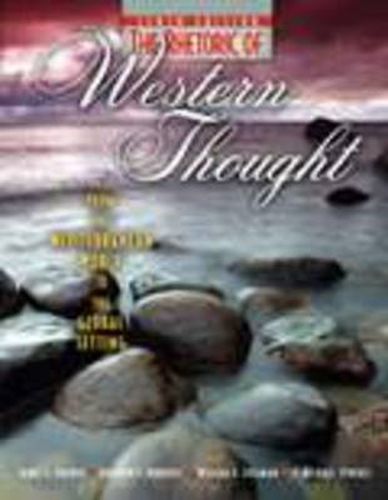Readings Newsletter
Become a Readings Member to make your shopping experience even easier.
Sign in or sign up for free!
You’re not far away from qualifying for FREE standard shipping within Australia
You’ve qualified for FREE standard shipping within Australia
The cart is loading…






This title is printed to order. This book may have been self-published. If so, we cannot guarantee the quality of the content. In the main most books will have gone through the editing process however some may not. We therefore suggest that you be aware of this before ordering this book. If in doubt check either the author or publisher’s details as we are unable to accept any returns unless they are faulty. Please contact us if you have any questions.
Building upon a rich legacy, the new edition of The Rhetoric of Western Thought provides readers with a comprehensive understanding of rhetoric from its inception in the ancient world, to its present day expression in contemporary practice and scholarship.
The 11th edition gives deliberate attention to the voices, bodies, and humans that are too often forgotten or silenced in the history of rhetoric.
For example, women’s contributions to rhetoric in Ancient Greece and the Middle Ages are interwoven into the history of rhetoric, rather than treated as an aside of afterthought which happens too often in retellings of the story of rhetoric.
Featuring a fresh design and engaging layout, The Rhetoric of Western Thought:
integrates new resources, including chapter objectives, overviews, and discussion questions throughout the book to help both students and instructors explore the history of rhetoric includes additional content, concepts, tools and perspectives on rhetoric throughout-including in-depth explanations of concepts (Rhetorical Toolbox), links to previous chapters (Looking Back), connections to future chapters (Looking Forward), and reflections on the politics of rhetorical history (We Should Note) pays deliberate attention to rhetoric in the contemporary world. It traces modernist conceptions of rhetoric to the contemporary world (Chapters 8-10) and explores issues of truth, new media, ideology, and materiality, all of which are essential to understanding rhetorical thought today (Chapters 11-14).
$9.00 standard shipping within Australia
FREE standard shipping within Australia for orders over $100.00
Express & International shipping calculated at checkout
This title is printed to order. This book may have been self-published. If so, we cannot guarantee the quality of the content. In the main most books will have gone through the editing process however some may not. We therefore suggest that you be aware of this before ordering this book. If in doubt check either the author or publisher’s details as we are unable to accept any returns unless they are faulty. Please contact us if you have any questions.
Building upon a rich legacy, the new edition of The Rhetoric of Western Thought provides readers with a comprehensive understanding of rhetoric from its inception in the ancient world, to its present day expression in contemporary practice and scholarship.
The 11th edition gives deliberate attention to the voices, bodies, and humans that are too often forgotten or silenced in the history of rhetoric.
For example, women’s contributions to rhetoric in Ancient Greece and the Middle Ages are interwoven into the history of rhetoric, rather than treated as an aside of afterthought which happens too often in retellings of the story of rhetoric.
Featuring a fresh design and engaging layout, The Rhetoric of Western Thought:
integrates new resources, including chapter objectives, overviews, and discussion questions throughout the book to help both students and instructors explore the history of rhetoric includes additional content, concepts, tools and perspectives on rhetoric throughout-including in-depth explanations of concepts (Rhetorical Toolbox), links to previous chapters (Looking Back), connections to future chapters (Looking Forward), and reflections on the politics of rhetorical history (We Should Note) pays deliberate attention to rhetoric in the contemporary world. It traces modernist conceptions of rhetoric to the contemporary world (Chapters 8-10) and explores issues of truth, new media, ideology, and materiality, all of which are essential to understanding rhetorical thought today (Chapters 11-14).